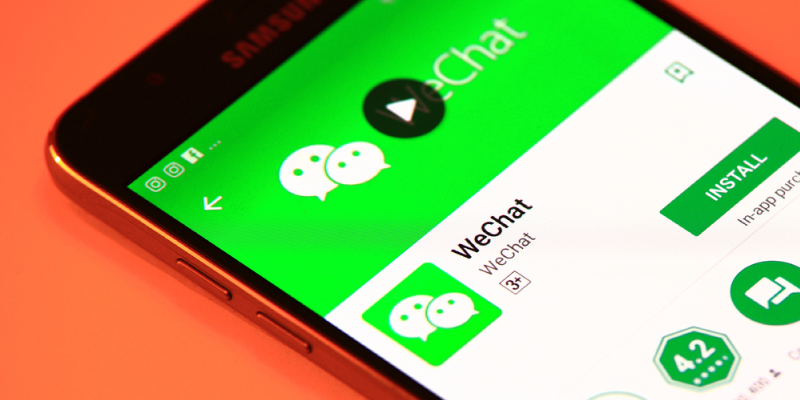Chinese giant WeChat hits 1 billion monthly active user accounts
Chinese social media platform WeChat revealed recently that it had crossed a billion monthly active user accounts in February. WeChat – known in China as Weixin – is developed and run by Tencent and is China’s most dominant messaging platform by a large margin, boasting 902 million daily active users. At a media briefing at the annual Two Sessions parliamentary meeting in Beijing, Tencent Holdings CEO Pony Ma Huateng disclosed the figure, calling it a “remarkable number”, and adding that the spike was thanks to a huge volume of traffic seen over the recent Chinese Lunar New Year.

Image: Shutterstock
It is worth noting that the 1 billion figure refers to active user accounts, and not necessarily individuals. WeChat allows users to create multiple accounts on the platform, including separate ones for personal and corporate use, for example, and its functionality has expanded to a range of verticals beyond instant messaging, including digital payments, taxi bookings, food delivery, and much more. The platform still lags behind dominant global players like Facebook (2.13 billion monthly active users at the end of 2017) and WhatsApp (1.5 billion monthly active users), but it is worth noting that while WeChat has a global presence, its traffic comes predominantly from just China, as compared to the others’ global presence.
WeChat’s recent surge in users can be attributed in a large part to a feature it rolled out over the Chinese Lunar New Year in February, letting users send digital hongbao, traditional red envelopes containing cash that are usually given as gifts over the Chinese New Year. Ma revealed that over 688 million WeChat users sent or received digital hongbao during this period last month, pushing the platform’s monthly traffic and helping it reach all-time highs. WeChat also benefits a lot from China’s Great Firewall policy that effectively bans or censors many global competitors like WhatsApp and Facebook Messenger, letting local platforms flourish.
WeChat is also likely to become an integral part of many Chinese citizens’ lives in the near future. The government of Guangzhou, the capital of southern coastal province Guangdong, started a pilot programme in December 2017 that integrates a virtual ID card with users’ WeChat accounts; the virtual ID provides the same function as traditional state-issued ID cards. The trial is rolling out to cover users across the entire province and is expected to eventually roll out to users across China by the end of 2018. This additional functionality of WeChat as a personal identification system will help make it even more indispensable in China, where the platform already has a virtually unassailable market dominance.
Going forward, Tencent Holdings has big plans for WeChat. The app’s Mini Programs feature lets Tencent, as well as independent developers, create applications for WeChat’s growing ecosystem – the platform revealed that it had a record 580,000 “mini-programs” running in its ecosystem as of January 2018. Plans for the future include an Augmented Reality (AR) platform as a new service offering, powered by Artificial Intelligence (AI) and a new 3D rendering engine that will allow realistic and detailed depictions of virtual objects in AR-enabled smartphones.








![[Funding alert] JetSynthesys raises Rs 300 cr from Poonawalla, Kris Gopalkrishnan](https://images.yourstory.com/cs/2/b87effd06a6611e9ad333f8a4777438f/Image84pl-1594114133552.jpg)


